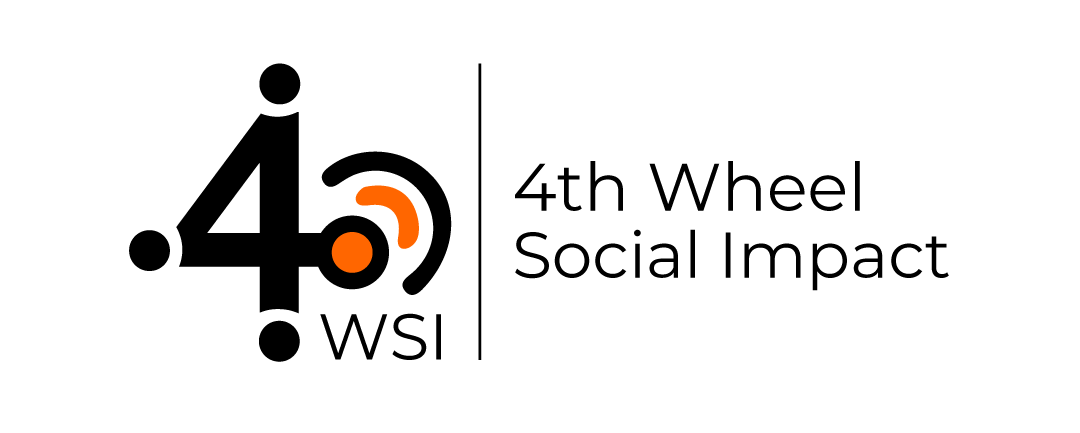Evaluation in a cultural context
- The 4th Wheel

- Dec 14, 2017
- 4 min read
Updated: Sep 16, 2025
If you talk to a man in a language he understands, that goes to his head. If you talk to him in his language, that goes to his heart.
– Nelson Mandela, former president of South Africa
Evaluation without cultural context often becomes an empty effort that hinders positive change. That’s why understanding the cultural nuances that play a role in the implementation of a project or a program is key to driving your initiative to success.
At its heart, social impact evaluation is about people. It is about ensuring that people are best served by the interventions/schemes and as evaluators, our fundamental job is to understand people and see if their needs are being met.
Recognizing the intricate ways in which various contexts shape the interpretation of information and facilitate communication is imperative for the precise collection of data, effective program design, and meaningful interaction with individuals.

What Is Culture and Cultural Context?
To put it plainly, culture consists of beliefs, customs, traditions, values, and behaviors shared by a particular group of people. It serves as the lens through which individuals and organizations perceive the world around them and interact with others.
Culture is not static. It evolves over time and is shaped by historical, social, economic, and political factors. Understanding culture involves coming to terms with its multifaceted nature, recognizing both its visible manifestations and its underlying meanings and implications.
Everything we do, from our assumptions to our implementation strategies, stems from our cultural vantage point. In the context of evaluation, acknowledging the diversity and complexity of cultures is fundamental to conducting assessments that are respectful, relevant, and accurate.
It is important to approach evaluation strategies with a critical cultural perspective to unearth specific, relevant, and meaningful data, better meet needs, and avoid inconsistencies or misunderstandings. Thus, developing cultural competencies is a valuable asset for an evaluator.
Influence Of South Asian Cultural Context On Evaluation
In the developing world, and especially in the South Asian context, we still count Western data systems and frameworks as the most robust tools and often adapt these to our current context. This results in a serious gap, and an urgent need to develop our own tools that are congruent to cultural norms.
In South Asia, cultural values such as collectivism, hierarchical social structures, and respect for authority often impact the dynamics of data collection and participant interactions. For instance, individuals may be more inclined to provide responses that align with societal expectations rather than expressing personal opinions.
Moreover, language barriers, diverse dialects, and literacy levels can pose challenges in effectively communicating evaluation objectives and interpreting findings. Additionally, the prevalence of complex social networks and community ties necessitates a nuanced approach to stakeholder engagement and data gathering.
Understanding and navigating these cultural dynamics are essential for ensuring the validity and reliability of evaluations conducted within the South Asian context. We have a sound South Asian evaluation theory and need to incorporate that into practice to enable deeper, more specific engagement through our social impact. The process ultimately enables practitioners to derive meaningful insights and conduct culturally sensitive interventions.
Creating Culturally Competent Evaluations
Having cultural context not only makes the impact of a program last for a long time but also identifies solutions that are relevant to the region in which the program is undertaken. Culturally competent evaluations demand a cautious, knowledgeable approach. There are a few ways in which you can create culturally competent evaluations.
Engage Stakeholders
Effective Theory of Change and evaluation tool development begin with robust stakeholder engagement. By involving all relevant parties—community members, program beneficiaries, local leaders, and evaluation experts—insights into diverse perspectives must be gained.
This collaborative approach ensures that the evaluation tool that’s created reflects the needs, priorities, and cultural nuances of the community being assessed.
Be Mindful of Cultural Biases
Acknowledging and addressing our own cultural biases is essential in creating culturally competent evaluation. Awareness of cultural biases allows evaluators to approach the evaluation process with sensitivity and openness. This minimizes the risk of imposing Western-centric perspectives.
By actively reflecting on how cultural backgrounds influence perceptions and interpretations, evaluators can design tools that are culturally responsive and inclusive.
Recognize and Acknowledge Cultural Influences
Understanding how various aspects of both the evaluator’s culture and the community’s culture impact implementation and evaluation is crucial. Cultural influences such as language, social norms, power dynamics, and historical contexts shape the evaluation process.
Recognizing and acknowledging these influences will lead evaluators to tailor precise methodologies and data collection techniques to effectively navigate cultural nuances and ensure the validity and reliability of the evaluation.
Pay Attention to Cultural Sensitivity
Cultural competence in evaluation entails moral capacity development and sensitivity to diverse cultural perspectives and an ongoing commitment to unlearning assumptions. Embracing cultural diversity enriches evaluation practices by allowing for the incorporation of multiple voices and perspectives.
Considering culture as a dynamic and influential element for both evaluators and those affected by evaluations leads to greater inclusivity and social engagement when it comes to designing and implementing evaluation tools.
Conclusion
At 4th Wheel, social impact evaluation is about driving change in the lives of people—seeing to it that their needs are met and their voices heard. An important aspect of making people feel heard involves learning about the culture around them. Evaluation efforts that overlook cultural context risk being ineffective and slow down the potential for progress.
Recognizing how various contexts shape information interpretation and communication is vital for efficient data collection and meaningful interaction. Particularly in the South Asian context, cultural values profoundly influence evaluation dynamics. Engaging stakeholders, addressing biases, recognizing cultural influences, and fostering cultural sensitivity are key steps toward creating evaluations that are not only relevant but also impactful and inclusive.
It is through cultural context and mindful methodologies that effective evaluations can bring a positive change in society. Through cultural competence, evaluators can better their practices and foster deeper social engagement to drive more effective interventions and create lasting impact.




Comments